In our tenth Sighting we reflect on the ‘changing weather’ and ask how we can stem the tide and nurture more warmth, connection and positivity.
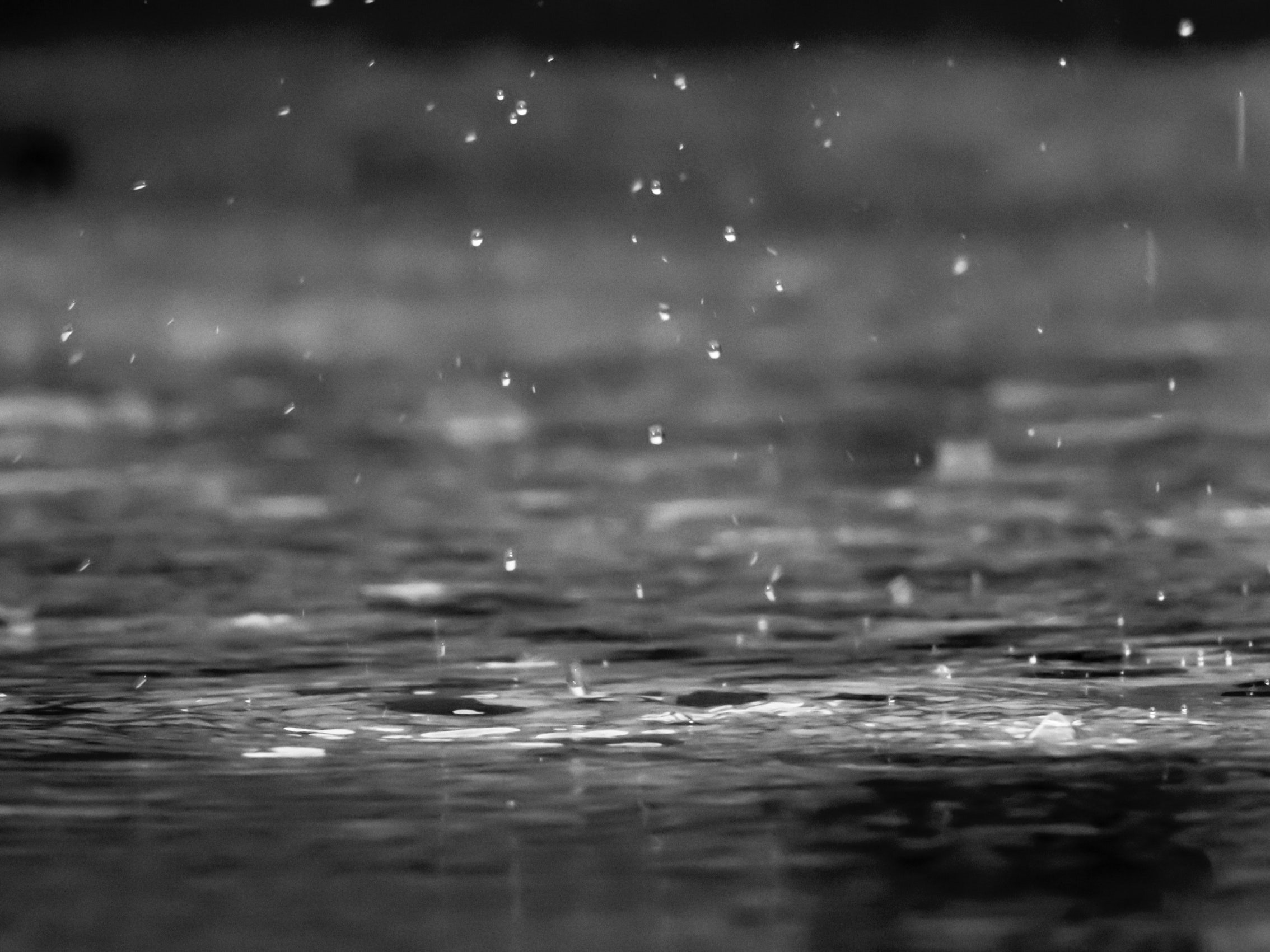
From doubting to trusting and back again?
We’ve heard how conspiracy theories that originated in the US have made their way over to the UK, pointing to a growing distrust between citizens and the state.
He continues, “We should remember that an attraction towards conspiracy theories is normally an indication of vulnerability and a lack of social identification with a powerful out-group; responding using “the facts” is unlikely to be effective – listening through the allegation in order to hear the un-met needs and responding accordingly is much more likely to build trust.”
The disillusionment phase?
Shifts in public sentiment of this kind following major disruptions are not unprecedented. SAMHSA lays out six phases of disaster, stage five being ‘disillusionment’.
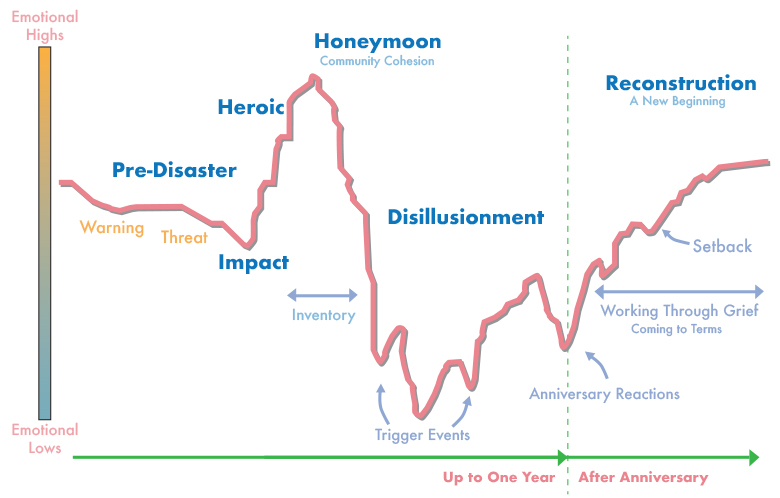
Source: SAMHSA Phases of Disaster
Back in March, April and into May we heard stories of heroism (stage three) and community cohesion (stage four). SAMHSA explains that during these phases “there is a sense of altruism, and many community members exhibit adrenaline-induced rescue behavior…disaster assistance is readily available. Community bonding occurs. Optimism exists that everything will return to normal quickly”.
The honeymoon phase is typically short lived, however, and replaced by disillusionment. “During the disillusionment phase, communities and individuals realize the limits of disaster assistance. As optimism turns to discouragement and stress continues to take a toll…The increasing gap between need and assistance leads to feelings of abandonment”.
This chimes with what we’ve been hearing lately:
Reasons to be positive
Whilst distrust, apathy, tension and scapegoating appear to be on the rise, we’ve been reminded that there are still reasons to be optimistic:
As Lockdown began they contacted Warwick hospital with an offer to deliver chemo drugs to patients’ homes as well. Four weeks later they were on the road “‘We cant be the stumbling block. We just need to make it work’ were the words of the Information Governance lead at Warwick Hospital. No DBS checks (because they weren’t needed) quick and simple telephone consent sought from patients, information shared. A loose three month agreement drawn up. ‘We don’t typically do that but they were itching to get started, and we were in the middle of an emergency. We knew some things would work and some things wouldn’t but not which ones so we just thought we can stock take as we go’ said the NHS manager who brought all the bits of puzzle together to make it happen. The can do approach flourished as a result of the pandemic and it is all going so well that another local hospital has come on board. All the Undercurrents we spotted in the Moment We Noticed – trust, collaboration, personalised provision and a can do spirit combining to brilliant effect!
Thanks to this week’s contributors
The Observatory is a voluntary collaboration led by the Relationships Project. We are dependent on the eyes and ears of our observers and partner organisations and we need more.
The voices heard this week include Diane Coles, Neil Denton, Karen Pilkington, Len Rosen, Jade Ward and Clare Wightman.
Read more
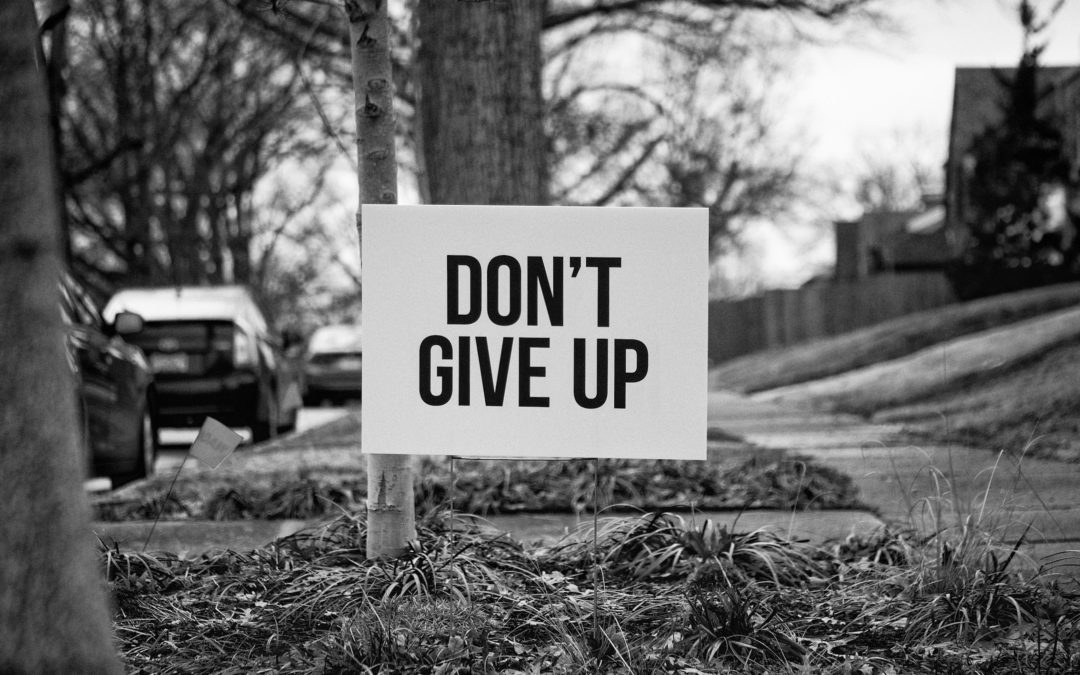
A Message of Hope and Solidarity
In brief In this beautiful message of hope, Khaled A reflects on the similarities between his experience as an asylum seeker and our shared experience of lockdown. He says “the mutual experience can help us all to understand each other better.” Khaled is originally...
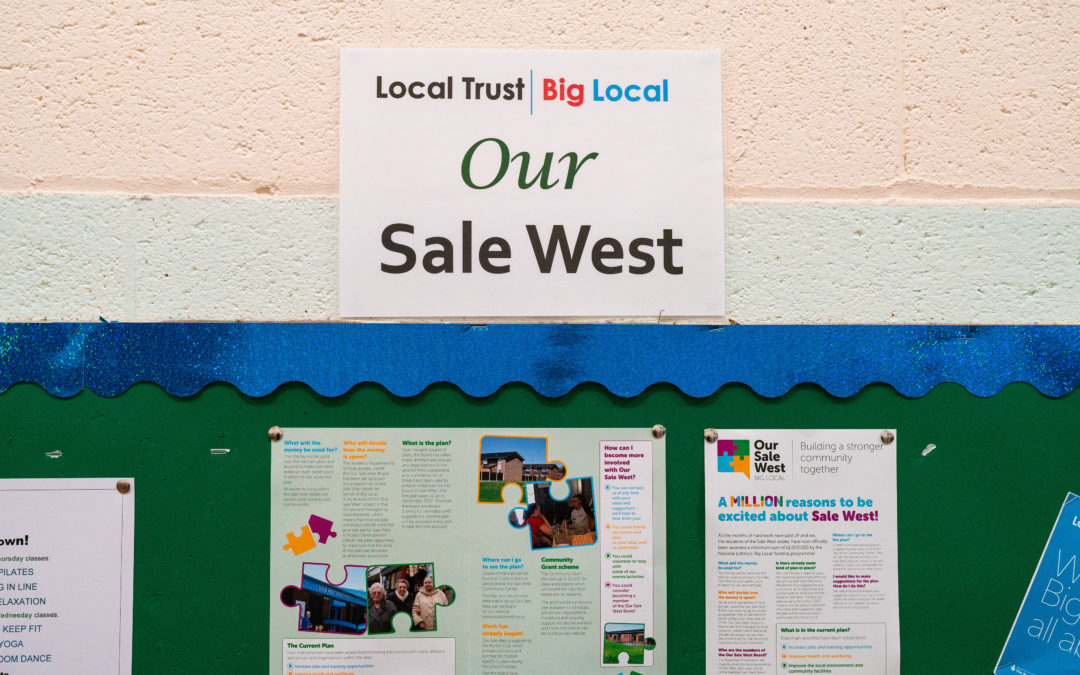
Connected Communities: Investing in our social fabric, post-crisis
In brief In this blog for The Relationships Observatory, Sam Julius and Jessie Powell from Local Trust explore the value of relationship building in communities and how we can look to sustain the recent surge in local connection after COVID-19. To find out...
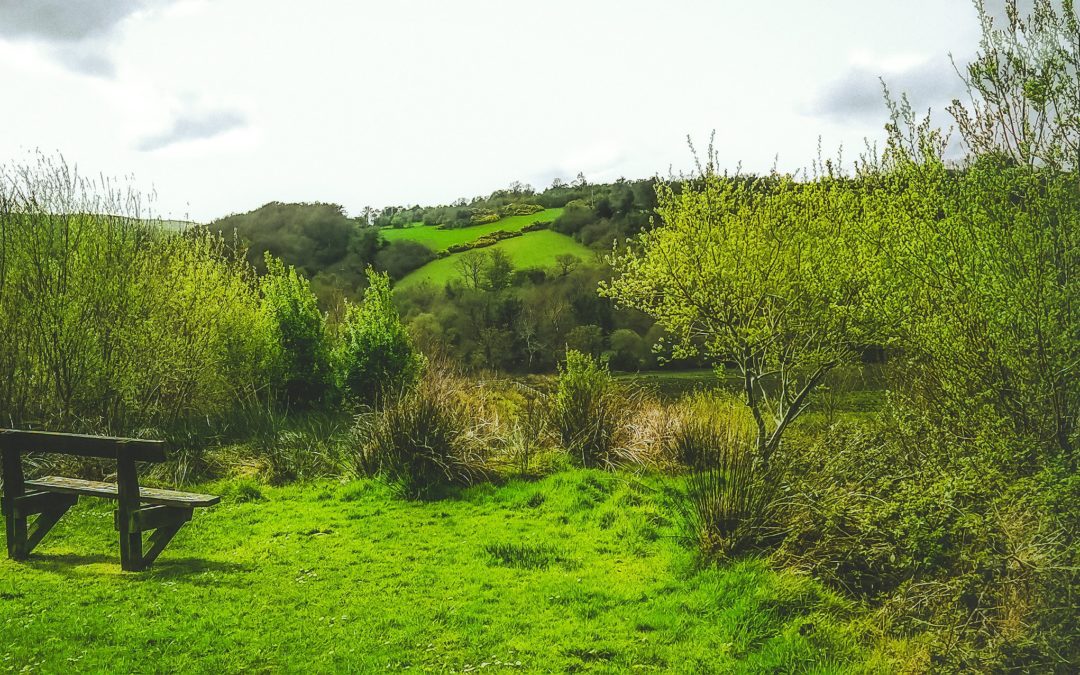
Observatory Sighting #7: Taking stock (part 1/2)
In this, our seventh Observatory Sighting, we begin to take stock of what we’ve learnt about the response to the outbreak of coronavirus.
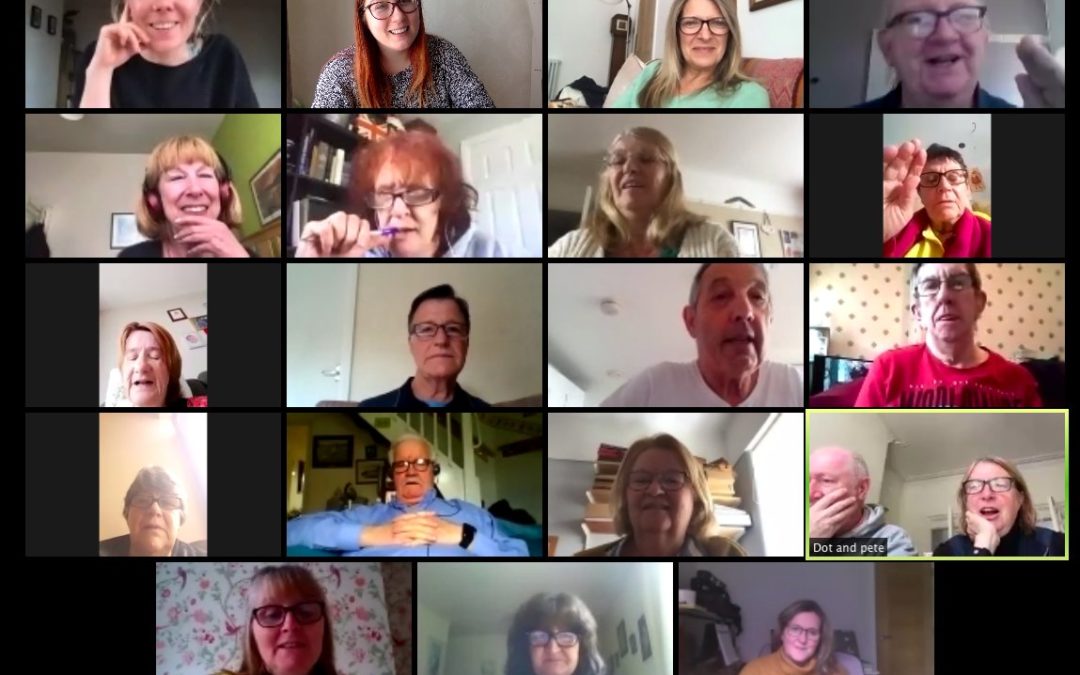
Intergenerational Solidarity in the Coronavirus Era
In brief In this blog for The Relationships Observatory, Cares Family CEO and Founder Alex Smith reflects on the importance of intergenerational solidarity for socially isolated older people and economically isolated younger people. The Cares Family is a group of...

Building Back Better
In brief In this short blog, David takes stock of what we've learnt from The Relationships Observatory and offers a positive reflection on what we take forward as we rebuild. This blog has also been published as part of Compass's #BuildBackBetter series. 750,000...

Observatory Sighting #6: Coming together and moving apart
In our sixth Observatory Sighting, we explore the ways in which we've both come together and moved apart, and ask how we can do more of the former and less of the latter. We have been looking at where communities are coming together across faiths, geographies...
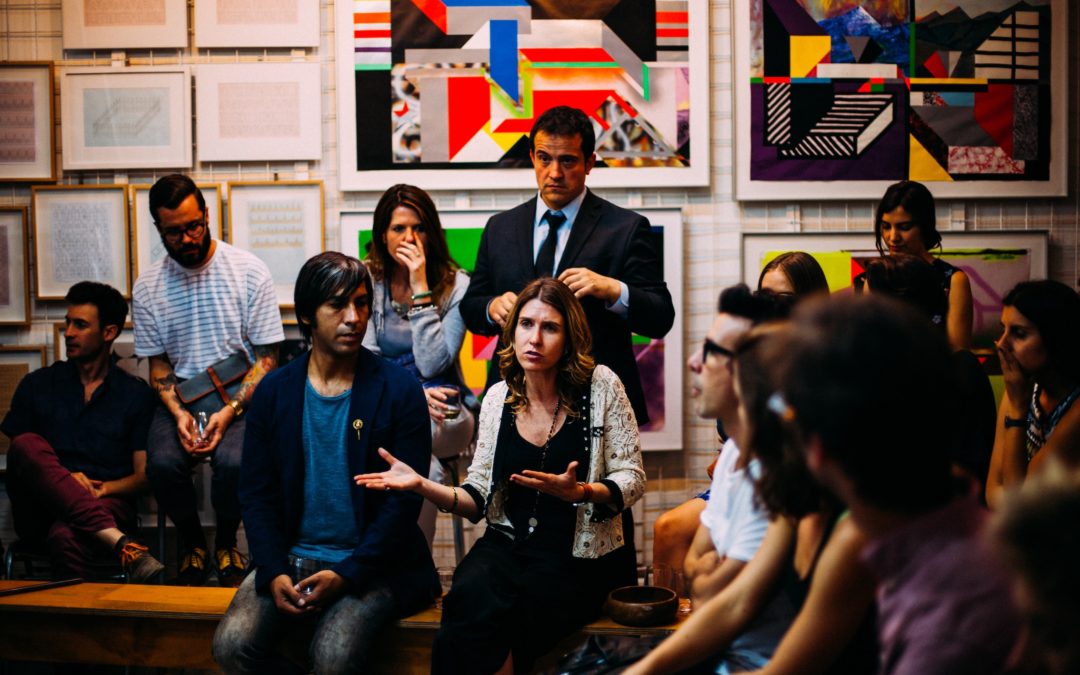
Observatory Sighting #5: From control to participation?
In our fifth Observatory Sighting, we explore the theme of participation, exploring instances in which we've seen a shift from control to participation and asking ourselves how this can be sustained. In the Looking to the Future discussion last week we took...
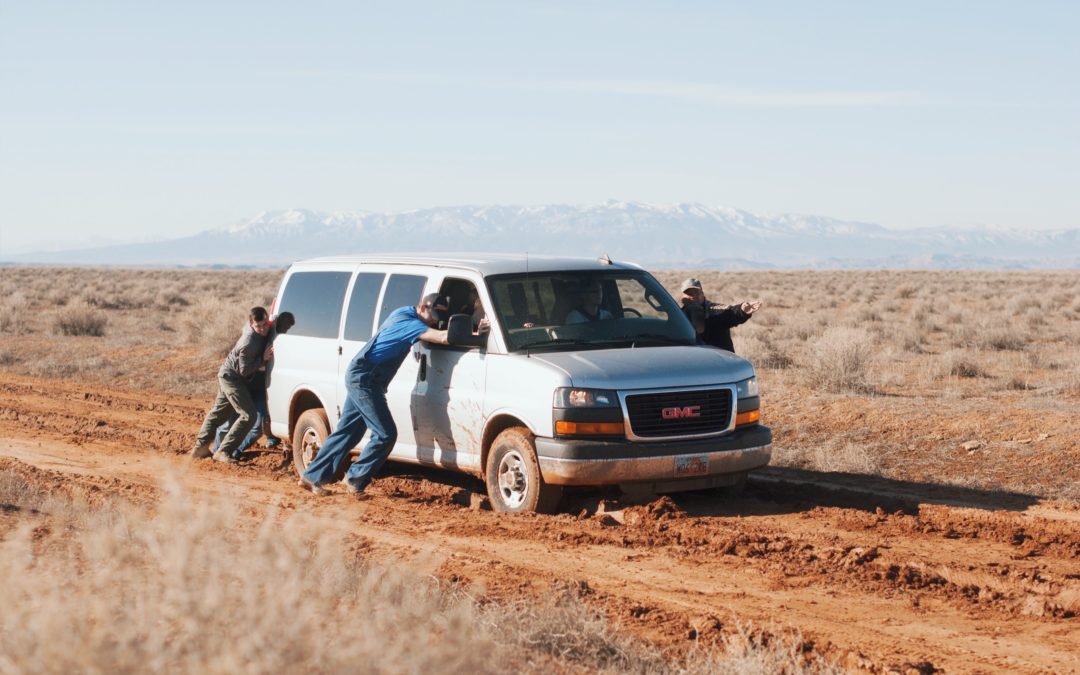
Observatory Sighting #4: From competition to collaboration
In our fourth Observatory Sighting, we discuss the shift from competition to collaboration born from the necessity of a rapid, joined up response to the disruption wraught by Covid-19. Relationships between organisations are changing as much as relationships between...

Connecting to Connected: Focusing on relationships in the age of Coronavirus
Nick works as a Specialty Doctor in Child and Adolescent Psychiatry, as a Cognitive Analytic Therapist and Honorary Senior Lecturer at University College London. In this blog, Nick discusses the fundamental role that relationships will play in enabling us to...

Observatory Sighting #3: The recalibration of trust
In this Observatory Sighting, we explore how trust is being recalibrated and the impact this is having on relationships both now and in the futureOver the last couple of weeks we have reported on what we see on the surface: Thousands of new community groups, new...
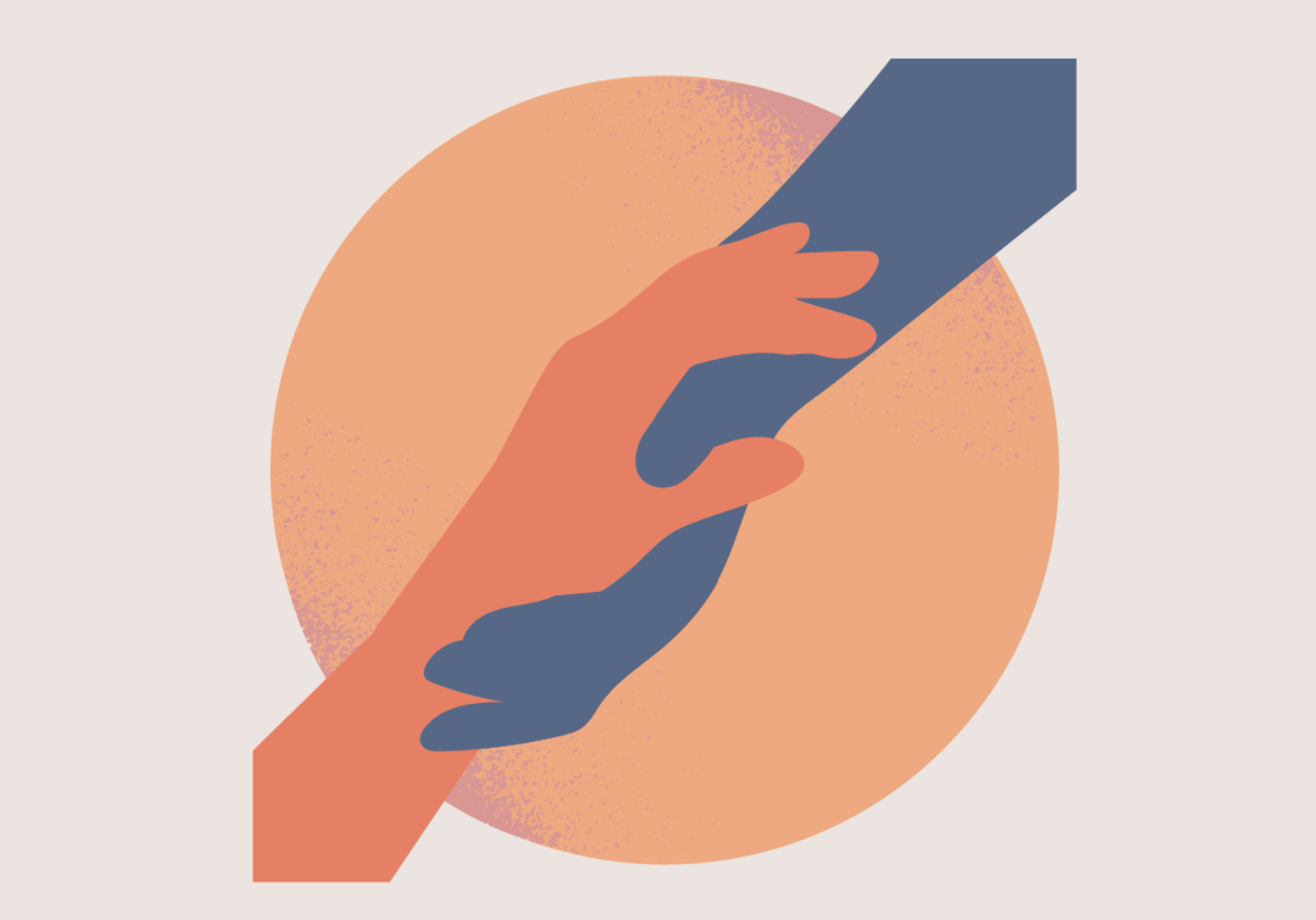
Sustaining and evolving the best of Mutual Aid
In brief In this blog, David explores the possibilities for Mutual Aid 2.0 and shares our plans for a peer sharing group for anyone interested in the question of how we nurture and sustain community activity into the future. A year ago, You Gov research, undertaken...
